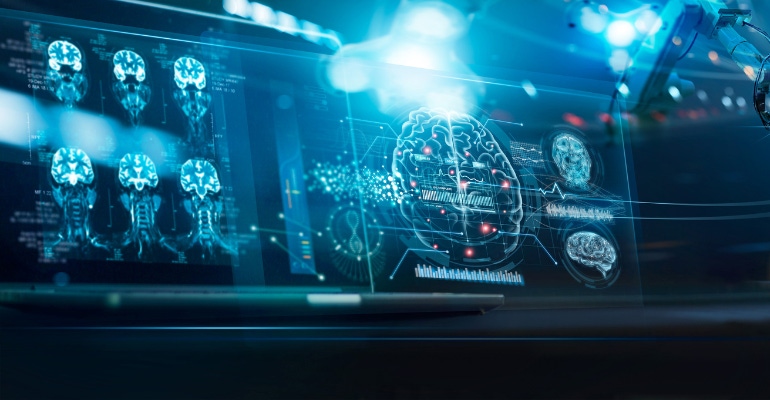UK Health Officials Tap into the AI Revolution
With an investment of £21M, health officials launch an ambitious plan to leverage artificial intelligence for diagnosing stroke, cancer, and heart conditions.
July 19, 2023

The UK is betting big on artificial intelligence (AI) in healthcare – specifically AI diagnostic tools.
UK Health and Social Care Secretary Steve Barclay recently allocated £21 million ($26.7 million) to the National Health Service (NHS) for a new fund intended to support promising AI imaging and support tools to accelerate the diagnosis of cancer, stroke, and heart conditions. This is in addition to the £123 million the government has already invested in AI technologies for stroke diagnosis, screening, cardiovascular monitoring, and managing conditions at home. The NHS spends £10 billion a year for medical technology.
NHS Trusts will be able to apply to the fund to accelerate deployment of AI diagnostic tools for these diseases. Barclay also committed to rolling out AI technology for stroke diagnosis to 100% of NHS stroke networks by the end of 2023 – up from 86% today – helping thousands of patients suffering from a stroke get treated faster.
Deb Lowe, MD, national clinical director for stroke medicine at NHS England, said the use of AI decision support software in the initial stages of stroke care means patients get interventions quicker, reducing the likelihood of disability and saving the brains.
Health officials said the use of AI diagnostic tools in the NHS is already having a positive impact on outcomes for patients. In some cases, AI is halving the time for stroke victims to get treatment by helping doctors diagnose stroke faster, which has been shown to triple the chance of patients living independently after a stroke.
"Artificial intelligence is already transforming the way we deliver healthcare and AI tools are already making a significant impact across the NHS in diagnosing conditions earlier, meaning people can be treated more quickly," Barclay said.
He emphasized a focus on leveraging technology to cut wait times, which is one of the UK government's top priorities.
This new fund will include the use of AI tools to analyze chest X-Rays, the most common tool used to diagnose lung cancer, which is the leading cause of cancer death in the UK. According to the NHS, more than 600,000 chest X-rays are performed each month in England.
From industry, Roche Diagnostics applauded the government for "being ambitious" in the use of AI for diagnosing health conditions quicker and at greater volumes.
"The Covid-19 pandemic put our NHS under immense pressure, and we know that an exhausted and depleted workforce are calling out for the latest tools and technology to help them to deliver the best care in the face of continued demand," Geoff Twist, managing director of Roche Diagnostics UK and Ireland," said in a statement provided to MD+DI. “We are already seeing in areas such as lung cancer that AI-powered diagnosis has the potential to revolutionize the future of healthcare for patients and our NHS. If we are to meet the challenges facing our brilliant health service and start improving the health and wellbeing of our nation, there must be a real sense of urgency and proper support to adopt more of these cutting-edge technologies.”
The £21 million funding will be open for bids for any AI diagnostic tool that trusts want to deploy but will have to represent value for money for the funding to be approved, health officials noted.
"Improving diagnosis and speeding up treatments for patients through AI is a game-changer," said Chloe Smith, Secretary of State for science, innovation, and technology.
The government also recently announced a new AI and digital regulation service to help NHS staff find the right information and guidance for deploying AI devices safely. This has made it easier for developers and adopters of AI to understand regulations governing AI in the NHS and is saving them time in bringing products to market, the government noted.
News of the new funding was widely welcomed by industry and medical associations like the Royal College of Radiologists (RCR).
"At a time when diagnostic services are under strain, it is critical that we embrace innovation that could boost capacity ... There is huge promise in AI, which could save clinicians time by maximizing our efficiency, supporting our decision-making, and helping identify and prioritize the most urgent cases," said RCR President Katharine Halliday. "Together with a highly trained and expert radiologist workforce, AI will undoubtedly play a significant part in the future of diagnostics."
About the Author(s)
You May Also Like



.png?width=300&auto=webp&quality=80&disable=upscale)
